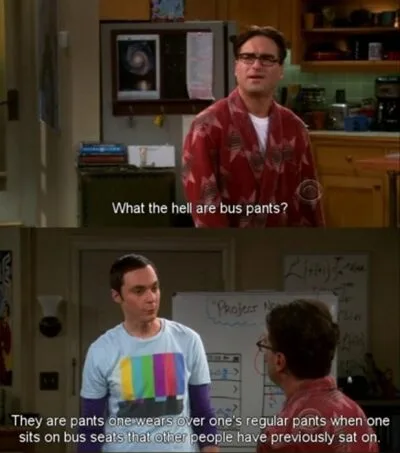In speaking with many Au Pairs, we’ve learned that there are many things that surprise foreigners in America. It would be impossible to list every little cultural difference between the U.S. and our Au Pairs’ home countries. But here are some common cultural differences that can surprise exchange visitors.
Cultural Differences: Food

1. Tipping waiters & service at restaurants
In the USA, waiters are expected to be very attentive, and it’s considered rude not to leave a tip.
This can be stressful for visitors on a budget, as 15% is often considered the bare-minimum for a gratuity.
2. Unlimited refills & free water
You’ll soon understand why Americans want to get their money’s worth when eating out. Restaurants are expensive!
Perhaps this is why water is free and most restaurants give unlimited soda refills. Even so, it’s usually much cheaper to prepare your own meals and eat at home.
3. Everything is supersized
No, seriously. Everything.
Among the things that surprise foreigners in America, this one is named quite often. Like I said, it’s expensive to eat out, and Americans like getting their money’s worth. So don’t be surprised when a single serving at a restaurant is enough to feed you for two meals.
4. So many choices everywhere you go
There are so many choices, no matter where you go. For example, if you ask your Host Parents to just pick any cereal for you at the grocery store, they may insist on a more specific request.
This is because we don’t just have a few types of cereal to choose from at the grocery store. We have an entire aisle of cereal to choose from. The same is true for almost everything.
5. Ice in Water
Many people find it shocking that we put ice in our drinks almost all the time. In fact, it’s the default at every restaurant. If you don’t want ice, you have to ask for your drink without ice.
Likewise, your Host Family probably will not know whether this custom is strange to you. If you don’t like this habit, you’ll likely have to say so. It won’t occur to most people that this might be a strange thing to offer a foreigner.
6. Drive-Thrus
Most people realize we have drive-thrus. But one of the things that surprise foreigners in America is that we have drive-thrus everywhere. Heck, you can even get your coffee in a drive-thru.
We love convenience in America, and we aren’t about to stop making things more convenient. There’s even talk of inventing drive-thru grocery stores!
7. 24-Hour restaurants
Do you know what else is convenient? 24-hour restaurants!
Some rural areas don’t have 24-hour restaurants, but man is it convenient to order take-out when you have a midnight craving.
8. Drinking milk at dinner
Some visitors find it odd that kids, and even adults, drink milk at dinner. But when you consider that the American diet isn’t exactly nutritious, drinking milk at dinner makes a lot of sense. Milk has a lot of essential vitamins and can help prevent osteoporosis in adult women.
Your Host Parents will probably be happy with you if you give their kids milk with meals. (Just make sure your Host Kids aren’t lactose intolerant!)
9. Kids can’t have caffeine
In many cultures, it’s normal for children to drink coffee at breakfast. However, you’ll find this is frowned upon in the U.S. This is one of the things that surprises foreigners in America the most.
Though it may seem strange, there’s scientific evidence that caffeine consumption affects brain development. Most parents don’t want their children drinking caffeinated soda, either. So be sure to ask your Host Parents if they have an age limit for caffeine in their home.
10. You can vote and join the army at 18, but you can’t drink alcohol until 21
Yep. We know it doesn’t really make sense. But Americans are very focused on the health and wellness of their kids, so most of us find it unacceptable to risk impacting brain development over a little alcohol or caffeine.
Plus, you can expect to be carded even if you look well over the age of 21. The drinking age is taken very seriously!
11. America can encourage unhealthy lifestyles
You may find it ironic that we’re so adamant about these things, yet the American diet seems to keep getting worse. Perhaps because we know how hard it is to stay fit as an adult in the U.S., we put more emphasis on keeping our youth healthy.
The United States’ work culture doesn’t always support healthy habits or a good work-life balance. But that seems to be steadily improving over time.
12. Jelly vs. Jello
This is just one example of how the words we have for different foods can be confusing at first. Sometimes, Au Pairs ask about the difference between jelly (a spread or preserve made from fruit) and jello (a gelatinous dessert).
Cultural Differences: Lifestyle

1. Americans can be extra friendly and may smile or wave at strangers
People are often surprised that Americans will smile or wave at strangers. Not only this, but they often offer to help strangers or strike up a conversation with strangers in public places. It comes across as odd at first, but many people find it nice after they get used to it.
2. Flags, Everywhere!
Americans can be very patriotic. You will likely see the U.S. flag flying all over the place. If you ask why the flag is up, or whether it’s a holiday, most Americans will probably shrug and say, “I don’t know.”
When we went to Wyoming for Easter, my Au Pair, Adriana, asked why every house flew an American flag on Easter. Honestly, I was hard-pressed to come up with an answer! But as it turns out, Easter is an official flag holiday. Go figure.
3. Very straightforward & blunt
You may have heard that people in the United States are very direct and straightforward. But even so, this is one of the things that surprise foreigners in America. Even when you know Americans are blunt, it’s a very different thing to experience it firsthand.
As an Au Pair, it’s important to know that your Host Family might not be used to people being anything but straightforward. For example, if they ask you whether you’re hungry, and you say, “No,” to be polite, they will take you at your word. They probably won’t offer food a second time, because you said you didn’t want any.
4. Sarcasm
Often, sarcasm is a U.S. trait that visitors find difficult to understand. Americans want you to be straightforward and direct. But at the same time, we often say the exact opposite of what we mean. This is a way of emphasizing the way we feel.
For example, if an American doesn’t want to go somewhere, they might say something like, “I’m so thrilled that I get to go.” They may use body language, such as rolling their eyes, to convey how not thrilled they are. But often, it’s less body language and more inflection, an emphasis. It can be subtle and is often meant to be humorous.
Sarcasm can be confusing at first. But once you get the hang of it, you may find it difficult to stop using sarcasm.
5. Not showering daily
It’s common in many cultures to shower daily, or several times a day. However, you may be surprised to learn that Americans don’t necessarily shower every day. Sometimes people shower every other day, and this is considered completely normal.
If you’re accustomed to showering multiple times a day, this is a good thing to discuss with your Host Family. They may not mind if you shower a lot. But it’s always a good idea to tell them about your home culture so they know you aren’t just wasting water. If your home country is very humid, you may also find it unnecessary to shower as often in the U.S.
It’s also good to note that your Host Kids don’t need to bathe daily. Ask your Host Parents what they prefer, but most pediatricians recommend bathing kids once or twice a week.
6. Wearing PJs or workout clothes anywhere
Ever had a nightmare that you went to the grocery store, but forgot to get dressed? Well, here that would just be a dream because Americans often wear PJs or workout clothes around town.
This is so common, in fact, many workplaces have to specify that workout clothes aren’t work-appropriate. Go figure!
7. Americans don’t always say what we mean.
In addition to sarcasm, Americans have many expressions that aren’t sarcastic, but also aren’t meant to be taken literally.
In the U.S., sometimes we say, “How are you?” or “What’s up?” as a way of saying “Hello.” It doesn’t really mean we want a detailed answer about how you’re doing. This often throws off visitors, who offer an in-depth answer and wonder why they receive a blank stare in return.
Some of our idioms can be confusing, too. For example, we say “It’s a piece of cake” in reference to something that’s easy to do. Or, “ballpark” in reference to a numerical guess.
8. Workers in the United States use less vacation time than other countries
It’s not that we get less vacation time. But it’s pretty common for people to just not use their time off. In fact, as many as 46% of Americans don’t use their PTO.
There are many theories about why this might be. However, most people agree that taking time off can actually be more stressful than working.
9. Americans are LOUD!
Perhaps this is best illustrated by my utter shock at how silent the subways are in Japan. I often summarize our visit as “the quietest vacation I’ve ever taken.”
However, it appears this is pretty normal, and the U.S. is the strange country. Many foreigners comment on how shocked they were by the noise in New York City subways.
10. Calling Ourselves “Americans”
Au Pairs have told me this is one of the things that surprises foreigners in America. Particularly South American Au Pairs, who say that South Americans also call themselves “Americans.” (Short for “South Americans,” of course).
In our case, it’s short for “The United States of America.” So, it seems we have that in common!
11. Hotel amenities
Many visitors are surprised by the extensive amenities in hotel rooms. What Americans consider a “small” room might consist of a king-sized bed, equipped with a microwave and TV.
Many hotels also offer a fridge in the room. But be wary of water bottles, the minibar, and room service, as these things cost extra.
12. Diversity
People often say they’re struck by the diversity in the U.S. Not just the wide variety of ethnicities in this “melting pot” of a country, but the incredible variety of foods from different cultures. Many Au Pairs say that experiencing food from all over the world is part of the cultural experience of living in America.
When you consider that over 311 languages are spoken in the U.S., it’s actually not that surprising that we have such a variety of ethnic foods!
13. The cities are dirty
This is another thing that struck me about visiting Japan: the subways and sidewalks literally sparkle!
Quite the contrast to public transportation in the U.S., which can be quite dirty. If you’ve seen Big Bang Theory, Sheldon Cooper’s need for “bus pants” might seem a little less crazy after you’ve ridden a bus in the U.S.

Image credit: dumpaday.com
14. Feeling unbelievably safe in the suburbs but unsafe in large cities
Cities like LA and NYC are notoriously unsafe. However, many people are shocked by how safe they feel in the suburbs and rural areas, even alone at night.
As an American visiting Europe, it can be quite shocking to realize that it’s not normal for women to go out alone at night. In the U.S., depending on where you live, it can be not just normal, but quite safe.
15. Prices in stores don’t include tax
Sales tax one of the things that surprise foreigners in America. Sales tax is added to your purchase at the checkout lane. So, be prepared for an additional 6-12% on each item you’re buying, depending on the state.
Even if you know price tags don’t include sales tax, it can make it challenging to shop at first!
16. Birthday celebrations and house parties last a few hours
In many countries, it’s common for birthday celebrations to last all day, or even all week!
Many Au Pairs are disappointed by the way we celebrate birthdays and holidays in the U.S. Typically, only kids and young adults have birthday parties. And even a child’s birthday party only lasts a few hours.
Conversely, many Au Pairs say that they love how many holidays we have in the U.S. Maybe the quantity of holidays is our way of making up for such short celebrations?
Cultural Differences: Driving

1. Huge vehicles
Remember when I said everything is bigger here? Yeah, I meant everything. Houses, bedrooms, food portions, and even cars!
Compared to many nations, the U.S. has ridiculously-oversized vehicles. But since many Americans rely on their cars for everything, we see larger vehicles as practical, even necessary. Particularly if a family has more than a couple kids, a large vehicle is just more efficient.
2. Wide roads
Large vehicles demand wide roads. Plus, the large number of drivers in America requires highways that can accommodate the sheer volume of traffic.
Our roads might be disorienting at first, but wider roads offer many advantages. Wider lanes mean improved safety on sharp turns. They also reduce the likelihood of crashes.
3. Really strange lights and traffic patterns
Traffic lights and road patterns aren’t always consistent throughout the U.S. For example, in West Valley, Utah, there are sections of Bangerter Highway that route traffic to drive on the right side of the road.
As long as you follow traffic signs and the lines on the road, you will be okay. But it can be really confusing and disorienting to drive in areas with strange traffic patterns, even when you’ve been driving in the U.S. for a while.
4. Driving on the left side of the road
This is one of the things that is most difficult for some foreigners when it comes to driving in the U.S.
If you’re used to driving on the right side of the road, it can take some adjustment.
5. Americans drive really fast! (Or do we?)
It’s ridiculously common for Americans to drive over the speed limit. (Though depending on where you’re from, our speed limits might seem pretty slow).
This isn’t just reckless disregard for the law. It’s part of the American lifestyle of always being “on the go.” When you start driving in the U.S., you may feel pressured by other traffic to drive faster. Don’t worry about it. Just stay in the right lane if you can and stick to the speed limit.
6. Eating while driving
Speaking of always being on the go, it’s common for Americans to eat in the car. It’s not very safe to eat while driving, though, and many states have begun discouraging eating while driving.
It’s been shown to be just as dangerous as texting while driving, which has been outlawed in many states.
7. To honk or not to honk?
In the U.S., honking is typically used to alert a driver that they’re doing something unsafe. Unlike in other countries, where honking can be almost like its own language, drivers don’t honk very often.
It’s even common to flash headlights at other cars to get their attention. This is considered preferable to honking, which is reserved for emergencies only. Admittedly, this is perhaps less effective than an intricate system of honks that mean something. A driver could flash their lights at you for many reasons: something could be wrong with your car, or you could be driving too slow, or maybe there’s a herd of deer ahead.
8. Public transportation (or lack thereof)
Public transportation is decent in many large cities in the U.S. However, in many areas, public transportation is seriously lacking compared to other parts of the world.
This is why Americans rely so much on their cars. If you’re going to be staying with a Host Family in a rural area, be sure you understand how accessible public transportation is, and whether the family can provide you with a car.
Cultural Differences: Miscellaneous

 1. Breathtaking scenery
1. Breathtaking scenery
If you’re imagining “purple mountain majesty” and images from Hollywood movies… you’re right.
Many Au Pairs say that coming to the U.S. feels like being in a movie. But none of that prepares you for the breathtaking scenery across the entire continent.
2. Free hiking
Some countries charge for hiking. To an American, this is preposterous. But to a visitor, it might be just as shocking to learn that hiking trails are free.
The only exception to this is for trails that are within a National Park. At some parks, you may have to pay a day-use fee to get in.
3. Household Appliances
Just like everything is bigger in the U.S., we also have appliances for almost everything. Your Host Family may be surprised to learn if you don’t know how to operate a coffee maker or dishwasher, but they’ll be happy to show you how.
4. Different Types of Soap
Remember the point above, that we have an overwhelming selection of everything imaginable? Well, the same is true of soap. Be mindful that dish soap isn’t the same thing as dishwasher detergent.
Similarly, laundry soap is meant for laundry only. If you put the wrong kind of soap into the wrong appliance, it can overflow with bubbles! Be sure to get clarification from your Host Family if you’re unsure of which different type of soap to use.
5. The American Dream
Probably one of the most cliches, but also one of the most-mentioned things that surprise foreigners in America, is realizing that the American Dream is for everyone.
And once you embrace the American Dream for yourself, there’s no turning back.
Cultural Differences are often small & easy to overlook!
There are many other things that surprise foreigners in America, but these are some of the most frequently mentioned. Of course, a lot of this is generalized information and won’t be true for every individual American.
Most cultural differences are little things that we take for granted in everyday life. Learning about these little nuances is a big part of learning about another culture. Not only will you be learning about life in the U.S., but your Host Family will likely learn quite a bit about your home country, too!
Have you noticed cultural differences during your time in the U.S.? Tell us about your experience in the comments!




 1. Breathtaking scenery
1. Breathtaking scenery